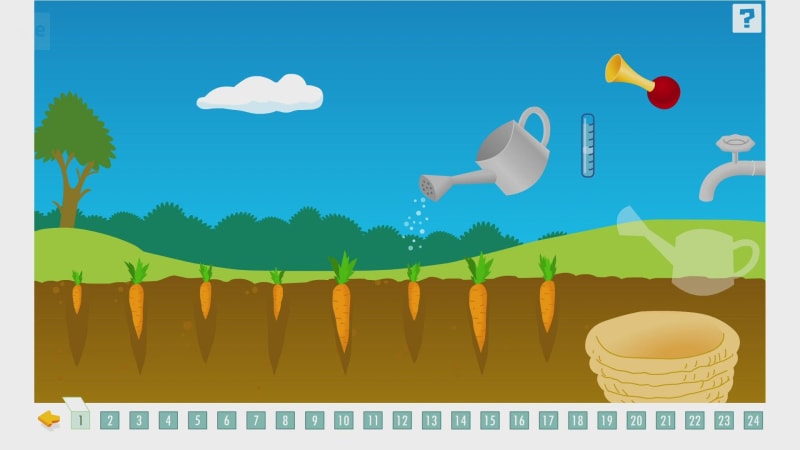Back in my day, in the glorious days of the late 2000s and early 2010s, one did not simply open the cover of their own personal laptop and start scrolling online immediately. Opening and using a computer was a hassle. It was a big deal, and it was made a big deal.
My first memory of using a computer happened in my mom’s study. She had bought a computer for work purposes; I was an eager user right from the beginning. The seemingly endless possibilities of the internet fascinated the curious mind of a child I had. Everything I was interested in could be found in some corner of the internet. I collected all my favourite websites to create a reading list, I still remember the majority of them.
But before I could access all the objects of my interest floating around the internet, I had to face the challenge of opening the computer itself. Opening my mom’s old work computer was not a walk in the park. It was not a piece of cake. It was not child’s play. First of all, the computer itself was a large grey box, a box that was completely separate from the screen, very different from the more advanced laptops university students carry around in their bags nowadays. To be able to use the computer, I first had to press the big round button on the box for a few seconds, but not for too long. Immediately after that, I had to open the screen by pressing the button in the lower right corner. It would take some time for the computer to warm up, it was not as fast as the screen. The screen would turn electric blue, and the computer would make a loud humming sound. Just thinking about this combination of sounds and visuals makes me nervous, what if something goes wrong, most often I didn’t manage to open the computer in one go, I was also extremely scared of accidentally breaking the expensive computer.
My online memories
Technology develops rapidly, that seems to be quite obvious for anyone living in the 21st century. The medium is the message, what children (and of course adults) do online has changed significantly mostly due to the developments of and increased access to computers and smartphones, which themselves quickly evolved from mere phones to portable miniature computers during the past two decades. From my childhood adventures online, I remember two things most vividly: games and online shopping. Since I was not in possession of a credit card and had not memorised my mom’s credit card information (yet), I had to settle for informing my mother about my shopping list instead of acquiring my dream clothes and toys myself. I used to print out the webpages with whatever I had decided I absolutely had to have. The printer was always out of paper, that’s how big of a shopaholic I was. Most of my time online I used to spend on games. At school, my teachers always advised me to consume Swedish-speaking media during our pastime (I was lacking behind my classmates who had spoken Swedish since they could walk), so I would spend hours and hours playing games on the website of the Swedish-speaking children’s show by Yle, Finland’s national public broadcasting company (thank you for funding my games Finnish taxpayers <3). I would of course play other games too, this one just left the most vivid memory in my mind, maybe due to its slight absurdity.

Generation Z vs Generation Alpha
I do not know what games Generation Alpha, the children of today, play. I can only assume they are different; it is hard for me to believe that a generation that is growing up consuming short-form media could be entertained by something as simple and slow as Bärtil the sheep’s carrot juice-making game. If I had grown up with TikTok, I sure would not have spent my Saturdays playing it. For a great portion of Generation Alpha, the internet and social media seem omnipresent, and being online is their normal state of being. The whole discourse on iPad kids raised by tired Millennial parents stems from this difference between the upbringing and worlds of Generation Z and Alpha. Seeing children stare at Cocomelon at the dinner table at a restaurant feels extremely different compared to my own childhood, where I had a strictly regulated screen time and at some point, even a screen day which was Saturday (honouring the wonderful Nordic tradition of candy day).
Generation Z and analog media
If growing up vs becoming an adult on social media is the great divide between these two generations, pieces of analog media play a similar role in the difference between the upbringings of Generation X and the ones that came after it (Millennials and Generation Z, especially Gen Z). When talking about analog media with members of the older generations, the discussion often starts with something like “You probably don’t remember, but…” or “Before you were born, we used to…” A great portion of Generation X (slightly calling out some of my professors) seems to have a preconception that Generation Z has never been in touch with analog media. We are the last generation who spent their childhood mostly surrounded by it! Yes, we do remember! I have multiple memories of struggling with a VHS cassette and using up the film of a disposable camera on a vacation. We are the generation that received a smartphone in middle school, not in kindergarten. The development of smart devices has happened along with our development. We didn’t grow up with a smartphone in our hands, but we grew up to eventually hold one. Generation z is a generation of great technological change and therefore great social change.


Recent Comments